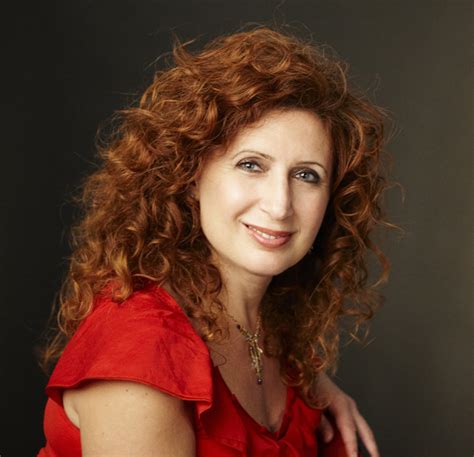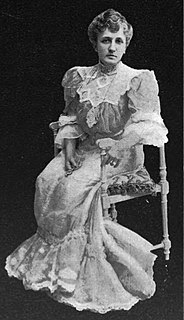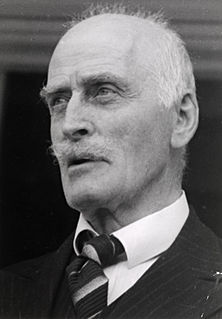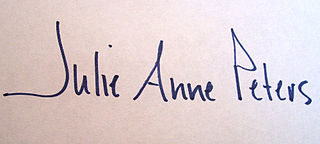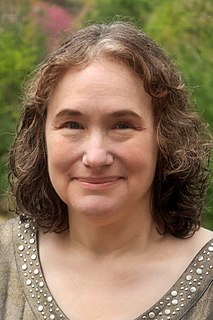A Quote by Paullina Simons
Alexander smoked and watched her from his tree stump bench. What are you doing? she would ask him. Nothing, he would reply. Nothing but growing my pain into madness.
Related Quotes
She expected the pain, when it came. But she gasped at its sharpness; it was not like any pain she had felt before. He kissed her and slowed and would have stopped. But she laughed, and said that this one time she would consent to hurt, and bleed, at his touch. He smiled into her neck and kissed her again and she moved with him through the pain. The pain became a warmth that grew. Grew, and stopped her breath. And took her breath and her pain and her mind away from her body, so that there was nothing but her body and his body and the light and fire they made together.
Do you think that was kind? Do you think it was godlike? What would you think of a physician, if a woman came to him distressed and said, "Doctor, come to my daughter, she is very ill. She has lost her reason, and she is all I have!" What would you think of the doctor who would not reply at all at first, and then, when she fell at his feet and worshiped him, answered that he did not spend his time doctoring dogs? Would you like him as a family physician?
The other one he loved like a slave, like a madman and like a beggar. Why? Ask the dust on the road and the falling leaves, ask the mysterious God of life; for no one knows such things. She gave him nothing, no nothing did she give him and yet he thanked her. She said: Give me your peace and your reason! And he was only sorry she did not ask for his life.
She'd assumed she'd be married and have kids by this age, that she would be grooming her own daughter for this, as her friends were doing. She wanted it so much she would dream about it sometimes, and then she would wake up with the skin at her wrists and neck red from the scratchy lace of the wedding gown she'd dreamed of wearing. But she'd never felt anything for the men she'd dated, nothing beyond her own desperation. And her desire to marry wasn't strong enough, would never be strong enough, to allow her to marry a man she didn't love.
If he looked into her face, he would see those haunted, loving eyes. The hauntedness would irritate him - the love would move him to fury. How dare she love him? Hadn't she any sense at all? What was he supposed to do about that? Return it? How? What could his calloused hands produce to make her smile? What of his knowledge of the world and of life could be useful to her? What could his heavy arms and befuddled brain accomplish that would earn him his own respect, that would in turn allow him to accept her love?
She wondered whether there would ever come an hour in her life when she didn't think of him -- didn't speak to him in her head, didn't relive every moment they'd been together, didn't long for his voice and his hands and his love. She had never dreamed of what it would feel like to love someone so much; of all the things that had astonished her in her adventures, that was what astonished her the most. She thought the tenderness it left in her heart was like a bruise that would never go away, but she would cherish it forever.
She looked at him then, but his image blurred behind tears that swelled into her eyes. She must leave. She must leave this room, because she wanted to hit him, as she had sworn she never would do. She wanted to cause him pain for taking a place in her heart that she wouldn't have given him if she'd known the truth. "You lied to me," she said. She turned and ran from the room.
There was a warmth of fury in his last phrases. He meant she loved him more than he her. Perhaps he could not love her. Perhaps she had not in herself that which he wanted. It was the deepest motive of her soul, this self-mistrust. It was so deep she dared neither realise nor acknowledge. Perhaps she was deficient. Like an infinitely subtle shame, it kept her always back. If it were so, she would do without him. She would never let herself want him. She would merely see.
She was in a terrible marriage and she couldn't talk to anyone. He used to hit her, and in the beginning she told him that if it ever happened again, she would leave him. He swore that it wouldn't and she believed him. But it only got worse after that, like when his dinner was cold, or when she mentioned that she'd visited with one of the neighbors who was walking by with his dog. She just chatted with him, but that night, her husband threw her into a mirror.
If she took Po as her husband, she would be making promises about a future she couldn't yet see. For once she became his wife, she would be his forever. And, no matter how much freedom Po gave her, she would always know that it was a gift. Her freedom would be not be her own; it would be Po's to give or to withhold. That he never would withhold it made no difference. If it did not come from her, it was not really hers.
Unless a man is prepared to ask a woman to be his wife, what right has he to claim her exclusive attention? Unless she has been asked to marry him, why would a sensible woman promise any man her exclusive attention? If, when the time has come for a commitment, he is not man enough to ask her to marry him, she should give him no reason to presume that she belongs to him.
Each day brought just another minute of the things they could not leave behind. Jane Barrington sitting on the train coming back to Leningrad from Moscow, holding on to her son, knowing she had failed him, crying for Alexander, wanting another drink, and Harold, in his prison cell, crying for Alexander, and Yuri Stepanov on his stomach in the mud in Finland, crying for Alexander, and Dasha in the truck, on the Ladoga ice, crying for Alexander, and Tatiana on her knees in the Finland marsh, screaming for Alexander, and Anthony, alone with his nightmares, crying for his father.
Sometimes she wished for someone she could tell about her problems, just to be able to say, ‘I’m in love with a man and I can’t have him.’ But that would only lead to questions she couldn’t answer, so she kept the secret and the pain inside, hoping someday she would no longer feel as if half of her were missing.
